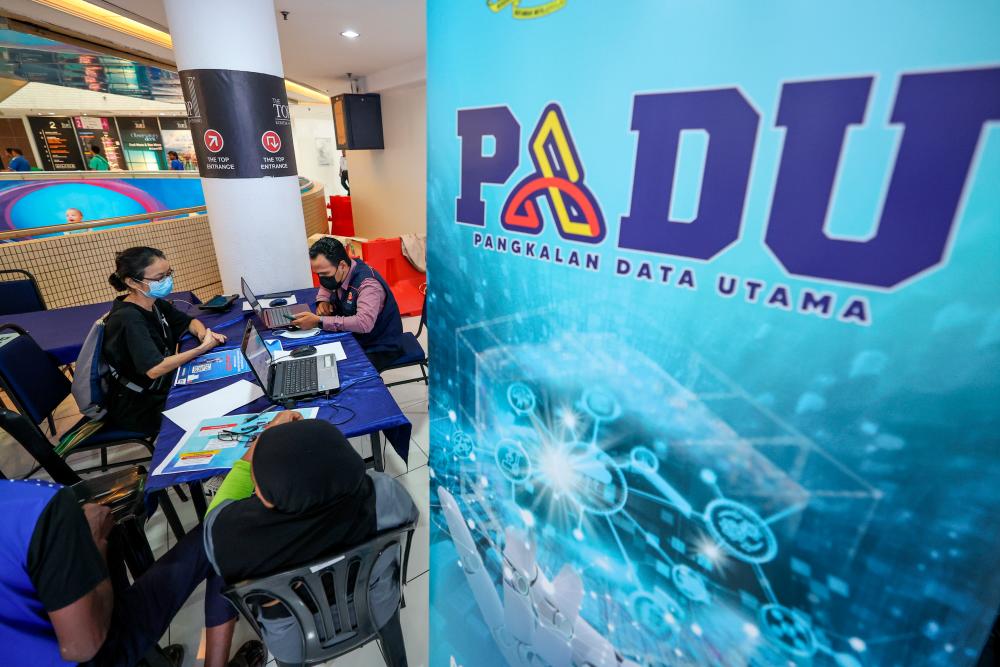PETALING JAYA: The Malaysian Coalition on Ageing, an NGO that advocates the well-being of the elderly, has urged the government to extend the March 31 closing date for Central Database Hub (Padu) registration.
Its chairman Cheah Tuck Wing said senior citizens would not be able to register before the deadline as many would not have assistance to navigate the process.
“Registration for Padu remains accessible until March 31, allowing users to verify and amend 39 personal particulars, including identification numbers, household composition and addresses.
“However, the government must recognise that those in need, including senior citizens, persons with disabilities and those in rural areas are struggling to register.”
Cheah said when implementing such systems, it is crucial to consider its accessibility and usability for all demographics, particularly senior citizens who are usually overwhelmed by digital platforms.
“There were technical issues and complaints about Padu when it was launched, leading to a reluctance to sign up among the people.”
Cheah also said senior citizens are the main target of scammers due to their vulnerability and if they are not careful, they may click on unknown links and later find themselves in trouble.
He said it is important for the government to recognise and work with accredited civil society groups and organise public-private partnerships to get vulnerable members of society and rural folk to register.
Due to the prevalence of opportunists in the digital sphere, he also advised individuals who are uncertain about the legitimacy of Padu links to refrain from clicking on them.
“The government can implement strategies such as deploying mobile registration units to rural areas, providing assistance and offering support services at kiosks and community centres.”
He added that by actively recognising and addressing the specific needs of these vulnerable communities, the government could ensure aid and subsidies reach those who need them most.
Nusantara Academy for Strategic Research senior research fellow Dr Azmi Hassan said ensuring the public is registered is crucial for the government to efficiently allocate aid and subsidies to targeted groups that might have been previously overlooked.
He agreed with Cheah on extension of the deadline and called for registration to be perpetually open to public access as it would allow individuals the flexibility to update their information whenever required.
“The needs of users can vary widely, and a rigid deadline may not suit everyone. So, allowing for real-time updates would minimise the risk of outdated or incorrect information.
“Keeping the system open could cater to the diverse preferences and schedules of users, and ensure maximum participation and engagement.”
Azmi also said an open and accessible database system would send a clear message of transparency and accountability, which demonstrates the government’s commitment to serving public interests.
“The government could also gain the trust and confidence of the public, particularly considering its role in collecting, storing and using personal information,” he said.









